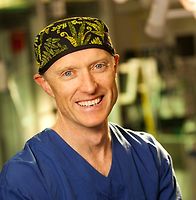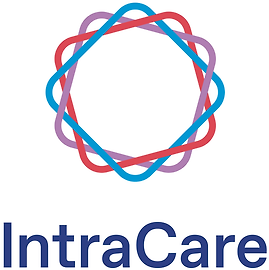Central Auckland, North Auckland, West Auckland > Private Hospitals & Specialists >
IntraCare
Private Service, Cardiology, Nephrology, Oncology, Radiology, Urology, Vascular Surgery, Gynaecology
Today
6:30 AM to 6:00 PM.
Description
Staff
Our staff-to-patient ratios are high, and our team of nurses, radiographers, anaesthetic technicians and administrative personnel are handpicked for their skills and experience to ensure we deliver the best patient care. You will be in safe and friendly hands throughout your stay.
Consultants
Note: Please note below that some people are not available at all locations.
-

Dr Peter Barr
Interventional Cardiologist, Cardiologist
Available at all locations.
-

Dr Rahul Bera
Interventional Radiologist, Radiologist
Available at all locations.
-

Dr Brendan Buckley
Interventional Radiologist, Interventional/Vascular Radiologist
Available at all locations.
-

Dr Kok Lam Chow
Interventional Cardiologist, Cardiologist
Available at all locations.
-

Dr Brigid Connor
Interventional Radiologist, Radiologist
Available at all locations.
-

Dr Luciana Marcondes
Paediatric Cardiologist/ Electrophysiologist, Cardiologist, Cardiologist Paediatric Electrophysiologist
Available at Allevia Hospital Epsom, 98 Mountain Road, Epsom, Auckland
-

Dr Rukshan Fernando
Interventional Radiologist, Radiologist
Available at all locations.
-

Dr Sarah Fitzsimons
Cardiologist
Available at all locations.
-

Dr Andrew Gavin
Cardiac Electrophysiologist, Cardiologist
Available at Allevia Hospital Epsom, 98 Mountain Road, Epsom, Auckland
-

Dr Ivor Gerber
Cardiologist
Available at all locations.
-

Dr Wil Harrison
Interventional Cardiologist, Cardiologist
Available at all locations.
-

Dr David Heaven
Cardiac Electrophysiologist, Cardiologist
Available at Allevia Hospital Epsom, 98 Mountain Road, Epsom, Auckland
-

Associate Professor Andrew Holden
Interventional/Vascular Radiologist, Interventional Radiologist
Available at Allevia Hospital Epsom, 98 Mountain Road, Epsom, Auckland
-

Dr Patrick Kay
Interventional Cardiologist
Available at all locations.
-

Assoc Prof Nigel Lever
Cardiologist, Cardiac Electrophysiologist
Available at Allevia Hospital Epsom, 98 Mountain Road, Epsom, Auckland
-

Dr Andrew Martin
Cardiologist, Cardiac Electrophysiologist, Adult Cardiologist /Electrophysiologist
Available at Allevia Hospital Epsom, 98 Mountain Road, Epsom, Auckland
-

Dr Stephen Merrilees
Radiologist, Interventional Radiologist
Available at all locations.
-

Dr Matthew O'Connor
Cardiologist, Cardiac Electrophysiologist, Consultant Electrophysiologist
Available at Allevia Hospital Epsom, 98 Mountain Road, Epsom, Auckland
-

Prof Peter Ruygrok
Interventional Cardiologist, Cardiologist
Available at all locations.
-

Dr Tony Scott
Cardiologist
Available at all locations.
-

Dr Jithendra Somaratne
Interventional Cardiologist, Cardiologist
Available at all locations.
-

Dr Jamie Voss
Cardiologist / Cardiac Electrophysiologist, Cardiologist, Cardiac Electrophysiologist
Available at Allevia Hospital Epsom, 98 Mountain Road, Epsom, Auckland
-

Dr Cara Wasywich
Interventional Cardiologist, Cardiologist
Available at all locations.
-

Dr Jonathon White
Interventional Cardiologist, Cardiologist
Available at all locations.
How do I access this service?
Contact us
Please contact us directly on
+64 (09) 630 1961
or by email at admin@intracare.co.nz
Referral
Referral Expectations
Usually, your GP will refer you to a specialist. Following your consultation with your specialist, you may require a procedure at IntraCare.
Fees and Charges Categorisation
Fees apply
Fees and Charges Description
IntraCare is affiliated with Southern Cross and AIA and can claim the cost of some procedures from these affiliated providers. If you are unsure whether your procedure is covered, please contact our administration team.
Hours
6:30 AM to 6:00 PM.
| Mon – Fri | 6:30 AM – 6:00 PM |
|---|
Public Holidays: Closed Good Friday (18 Apr), Easter Sunday (20 Apr), Easter Monday (21 Apr), ANZAC Day (25 Apr), King's Birthday (2 Jun), Matariki (20 Jun), Labour Day (27 Oct), Auckland Anniversary (26 Jan), Waitangi Day (6 Feb).
Procedures / Treatments
Interventional Cardiology (IC) is a speciality area dedicated to managing coronary artery disease and structural heart problems. Coronary artery disease is diagnosed with a minimally invasive technique known as coronary angiography, where fine tubes known as catheters are used to take X-ray images of the coronary arteries. Coronary disease can then be treated using the same minimally invasive approach, usually in the same setting, using techniques known as percutaneous coronary intervention (PCI). PCI involves treatment of coronary narrowing using metal scaffolds known as stents, which have been shown to improve symptoms and quality of life as compared to medical therapy. In many situations, this can provide a safe and effective alternative to open heart surgery. Coronary Angiography Coronary Angioplasty +/- Stenting (Percutaneous Coronary Intervention - PCI) Structural heart problems that can be treated using minimally invasive techniques include narrowed valves and abnormal connections between the chambers of the heart. These techniques can also provide a safe and effective alternative to open heart surgery in selected cases. Structural Heart Procedures Atrial Septal Defect (ASD) Closure Left Atrial Appendage Closure Patent Foramen Ovale (PFO) Closure Transcatheter Aortic Valve Implantation (TAVI) Transesophageal Echocardiogram (TOE)
Interventional Cardiology (IC) is a speciality area dedicated to managing coronary artery disease and structural heart problems. Coronary artery disease is diagnosed with a minimally invasive technique known as coronary angiography, where fine tubes known as catheters are used to take X-ray images of the coronary arteries. Coronary disease can then be treated using the same minimally invasive approach, usually in the same setting, using techniques known as percutaneous coronary intervention (PCI). PCI involves treatment of coronary narrowing using metal scaffolds known as stents, which have been shown to improve symptoms and quality of life as compared to medical therapy. In many situations, this can provide a safe and effective alternative to open heart surgery. Coronary Angiography Coronary Angioplasty +/- Stenting (Percutaneous Coronary Intervention - PCI) Structural heart problems that can be treated using minimally invasive techniques include narrowed valves and abnormal connections between the chambers of the heart. These techniques can also provide a safe and effective alternative to open heart surgery in selected cases. Structural Heart Procedures Atrial Septal Defect (ASD) Closure Left Atrial Appendage Closure Patent Foramen Ovale (PFO) Closure Transcatheter Aortic Valve Implantation (TAVI) Transesophageal Echocardiogram (TOE)
Interventional Cardiology (IC) is a speciality area dedicated to managing coronary artery disease and structural heart problems.
Coronary artery disease is diagnosed with a minimally invasive technique known as coronary angiography, where fine tubes known as catheters are used to take X-ray images of the coronary arteries. Coronary disease can then be treated using the same minimally invasive approach, usually in the same setting, using techniques known as percutaneous coronary intervention (PCI). PCI involves treatment of coronary narrowing using metal scaffolds known as stents, which have been shown to improve symptoms and quality of life as compared to medical therapy. In many situations, this can provide a safe and effective alternative to open heart surgery.
Coronary Angiography- Coronary Angioplasty +/- Stenting (Percutaneous Coronary Intervention - PCI)
Structural Heart Procedures
- Atrial Septal Defect (ASD) Closure
- Left Atrial Appendage Closure
- Patent Foramen Ovale (PFO) Closure
- Transcatheter Aortic Valve Implantation (TAVI)
- Transesophageal Echocardiogram (TOE)
Interventional Radiology (IR) is a specialised branch of medicine that utilizes advanced medical imaging techniques to perform a wide range of minimally invasive procedures. Interventional Radiology performs both diagnostic and therapeutic procedures through very small incisions. Diagnostic interventional radiology (IR) procedures are performed to aid in diagnosis or guide further medical treatment. These procedures include image-guided tumour biopsies, angiograms—where a contrast dye is injected into blood vessels to assess circulation—and cholangiograms, which involve injecting contrast into the bile ducts to identify blockages within the liver. Endovascular Aneurysm Repair (EVAR) Liver Ablation Liver Biopsy Peripheral Angiography PICC Insertion Portacath Insertion Portacath Removal Renal Ablation Renal Angiography and Angioplasty Renal Biopsy Sclerotherapy Selective Internal Radiation Therapy (SIRT) Uterine Fibroid Embolisation Varicocele Embolisation
Interventional Radiology (IR) is a specialised branch of medicine that utilizes advanced medical imaging techniques to perform a wide range of minimally invasive procedures. Interventional Radiology performs both diagnostic and therapeutic procedures through very small incisions. Diagnostic interventional radiology (IR) procedures are performed to aid in diagnosis or guide further medical treatment. These procedures include image-guided tumour biopsies, angiograms—where a contrast dye is injected into blood vessels to assess circulation—and cholangiograms, which involve injecting contrast into the bile ducts to identify blockages within the liver. Endovascular Aneurysm Repair (EVAR) Liver Ablation Liver Biopsy Peripheral Angiography PICC Insertion Portacath Insertion Portacath Removal Renal Ablation Renal Angiography and Angioplasty Renal Biopsy Sclerotherapy Selective Internal Radiation Therapy (SIRT) Uterine Fibroid Embolisation Varicocele Embolisation
Interventional Radiology (IR) is a specialised branch of medicine that utilizes advanced medical imaging techniques to perform a wide range of minimally invasive procedures.
Interventional Radiology performs both diagnostic and therapeutic procedures through very small incisions. Diagnostic interventional radiology (IR) procedures are performed to aid in diagnosis or guide further medical treatment. These procedures include image-guided tumour biopsies, angiograms—where a contrast dye is injected into blood vessels to assess circulation—and cholangiograms, which involve injecting contrast into the bile ducts to identify blockages within the liver.
- Endovascular Aneurysm Repair (EVAR)
- Liver Ablation
- Liver Biopsy
- Peripheral Angiography
- PICC Insertion
- Portacath Insertion
- Portacath Removal
- Renal Ablation
- Renal Angiography and Angioplasty
- Renal Biopsy
- Sclerotherapy
- Selective Internal Radiation Therapy (SIRT)
- Uterine Fibroid Embolisation
- Varicocele Embolisation
Electrophysiology (EP) is a specialised field of cardiology that focuses on the electrical activity of the heart. It involves diagnosing and treating abnormal heart rhythms (arrhythmias). Electrophysiology procedures are performed by inserting a small, flexible tube into a blood vessel, allowing electrode catheters to be guided up to the heart. Using advanced technology, abnormal electrical pathways can be identified and, if suitable, corrected with targeted catheter ablation. This minimally invasive approach helps restore normal heart rhythms, improving patient outcomes and quality of life. Electrophysiology procedures also include the implantation of cardiac devices, such as pacemakers for slow heart rhythms and cardiac resynchronisation devices for heart failure treatment. Arrhythmias that we treat at IntraCare include atrial fibrillation (AF), atrial flutter, supraventricular tachycardia (SVT), ventricular arrhythmias including ventricular tachycardia (VT) and premature ventricular contractions (PVCs) and bradyarrhythmias. Atrial Flutter Ablation AV Junction Ablation Direct Current Cardioversion Pacemaker Implantation Premature Ventricular Complex/VT Ablation Pulmonary Vein Isolation Supraventricular Tachycardia Study and Ablation
Electrophysiology (EP) is a specialised field of cardiology that focuses on the electrical activity of the heart. It involves diagnosing and treating abnormal heart rhythms (arrhythmias). Electrophysiology procedures are performed by inserting a small, flexible tube into a blood vessel, allowing electrode catheters to be guided up to the heart. Using advanced technology, abnormal electrical pathways can be identified and, if suitable, corrected with targeted catheter ablation. This minimally invasive approach helps restore normal heart rhythms, improving patient outcomes and quality of life. Electrophysiology procedures also include the implantation of cardiac devices, such as pacemakers for slow heart rhythms and cardiac resynchronisation devices for heart failure treatment. Arrhythmias that we treat at IntraCare include atrial fibrillation (AF), atrial flutter, supraventricular tachycardia (SVT), ventricular arrhythmias including ventricular tachycardia (VT) and premature ventricular contractions (PVCs) and bradyarrhythmias. Atrial Flutter Ablation AV Junction Ablation Direct Current Cardioversion Pacemaker Implantation Premature Ventricular Complex/VT Ablation Pulmonary Vein Isolation Supraventricular Tachycardia Study and Ablation
Electrophysiology (EP) is a specialised field of cardiology that focuses on the electrical activity of the heart. It involves diagnosing and treating abnormal heart rhythms (arrhythmias).
Electrophysiology procedures are performed by inserting a small, flexible tube into a blood vessel, allowing electrode catheters to be guided up to the heart. Using advanced technology, abnormal electrical pathways can be identified and, if suitable, corrected with targeted catheter ablation. This minimally invasive approach helps restore normal heart rhythms, improving patient outcomes and quality of life.
Electrophysiology procedures also include the implantation of cardiac devices, such as pacemakers for slow heart rhythms and cardiac resynchronisation devices for heart failure treatment.
Arrhythmias that we treat at IntraCare include atrial fibrillation (AF), atrial flutter, supraventricular tachycardia (SVT), ventricular arrhythmias including ventricular tachycardia (VT) and premature ventricular contractions (PVCs) and bradyarrhythmias.
- Atrial Flutter Ablation
- AV Junction Ablation
- Direct Current Cardioversion
- Pacemaker Implantation
- Premature Ventricular Complex/VT Ablation
- Pulmonary Vein Isolation
- Supraventricular Tachycardia Study and Ablation
Disability Assistance
Wheelchair access, Wheelchair accessible toilet, Mobility parking space
Website
Contact Details
Allevia Hospital Epsom, 98 Mountain Road, Epsom, Auckland
Central Auckland
6:30 AM to 6:00 PM.
-
Phone
(09) 630 1961
-
Fax
(09) 630 1962
Healthlink EDI
intraltd
Email
Website
Northern Clinic - Southern Cross North Harbour Campus, 212 Wairau Road, Wairau Valley, Auckland
North Auckland
6:30 AM to 6:00 PM.
-
Phone
(09) 630 1961
-
Fax
(09) 630 1962
Healthlink EDI
intraltd
Email
Website
Was this page helpful?
This page was last updated at 12:12PM on April 3, 2025. This information is reviewed and edited by IntraCare.

